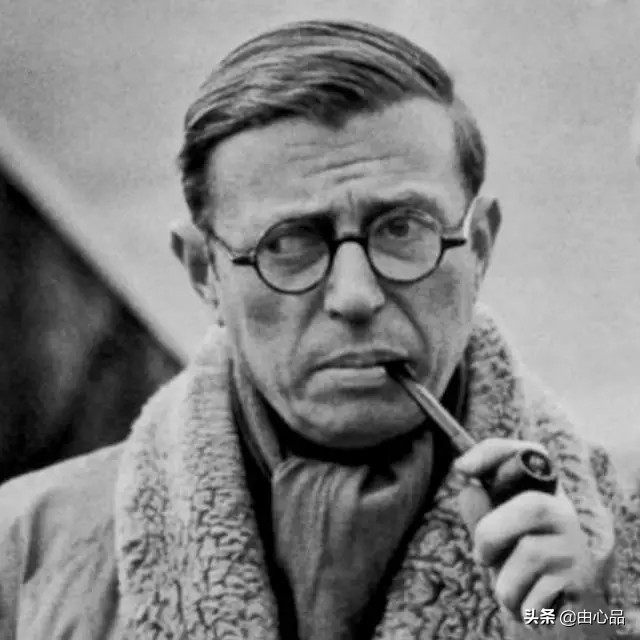
Existentialism is by no means a philosophy that advocates inaction, for it judges man by his actions. Nor is it a pessimistic outlook on life, for it holds that man's fate is in his own hands, and that there is no other doctrine more optimistic than it.
It is not to be afraid of action, because it tells people that their hope lies only in their own actions, and only actions have life. Existentialism, therefore, is an ethics of action and intervention.
This doctrine is the doctrine of dignity, the only doctrine that does not reduce man to matter. All materialism treats man as a thing, that is, as something determined by necessity, no different from what constitutes a table, a chair, and a stone.
Our aim is to build a human world with a total value that is different from the material world. Our subjectivity as the standard of truth is not subjectivity in the narrow sense. For we have shown that when one "thinks", one discovers not only oneself but also others.
Contrary to the philosophies of Descartes and Kant, when we "think," we discover ourselves among others. Others, like our selves, are real. Therefore, when a person discovers himself in "I think", he also discovers others, and discovers that others are the conditions for his own existence.
He realizes that he is what others think he is, and that he is nothing else; he cannot obtain any facts about himself unless he deals with them. Others are essential to our existence and essential to our self-knowledge.
In this way, while we find ourselves there, we also discover the existence of others. Others are the freedom to face my freedom. Thus it can be claimed that we have discovered a world of "mutual subjectivity" in which we determine both ourselves and others.
While the content of ethics is constantly changing, some of its forms are universal. Kant said that freedom is a will for oneself and for others. That's good. But he believed that what was formal and universal was enough to constitute an ethics. On the contrary, we believe that too abstract principles cannot determine an action.
Let me take my student as an example. Think about it, what kind of authority, what kind of moral discipline, can make him decide to abandon his mother, or stay with her? We can't judge this on the basis of anything.
The content of ethics is always concrete and therefore unpredictable. Of course, something will always happen, and the only thing that matters is to see if these things happen in the name of freedom.
Dostoevsky said, "If God doesn't exist, anything can happen." And that's the starting point of existentialism. Indeed, if God does not exist, anything can happen; as a result man becomes outcast. Because neither inside nor outside him, he could find something to lean on. He didn't have any raison d'
If it is true that existence precedes essence, we cannot explain our actions in terms of an innate existing humanity; in other words, there is no determinism at all. Man is free. Man is freedom.
On the other hand, if God does not exist, we have no values or precepts that justify our actions. Therefore, neither before us nor after us has a value area that can illuminate us. We are alone and alone, unexplainable. This is what I mean when I say, "Man is judged to be free."
He is judged because a man is not to exist in the world himself, but once he does, he is free; ever since he has been thrown into the world, he is responsible for everything he has done.
It seems to me that in every real situation, freedom can only serve its own purposes. Once one understands that he is making value judgments in a situation of abandonment, he can only demand freedom as the basis of all values and does not seek anything more. This is by no means to say that he demands freedom in the abstract, but that the fundamental meaning of the action of an honest man is that he demands freedom for the sake of freedom.
We are in all kinds of specific situations and demand freedom for freedom through these situations. In this demand, we find that this depends entirely on the freedom of others, who in turn depend on our freedom. Of course, freedom, as a rule of man, is not dependent on others. But once I acted, I had to demand the freedom of others at the same time as I demanded my own freedom.
I have my own freedom as my goal, which is only possible if the freedom of others is also my goal. I sincerely believe that man is a creature who exists before essence and who must demand his own freedom in all circumstances, and I also realize that he cannot demand the freedom of others at the same time.
Thus, in the name of this demand for freedom, which is contained in freedom itself, we can judge those who want to hide from themselves the spontaneous nature and absolute freedom of their existence. To those who use the excuse of seriousness or determinism to hide their absolute freedom, I call them cowards. To those who describe its existence as an inevitable but in fact accidental phenomenon, I call it a pig.
Existentialism is a kind of humanitarianism
[This article is excerpted from the book "Sartre's Self-Description" (compiled by Huang Zhongjing et al., Tianjin People's Publishing House, 2008 edition)]
Should Sartre's political position be denied? Also talking about "What is sartre's eternal value" (III)